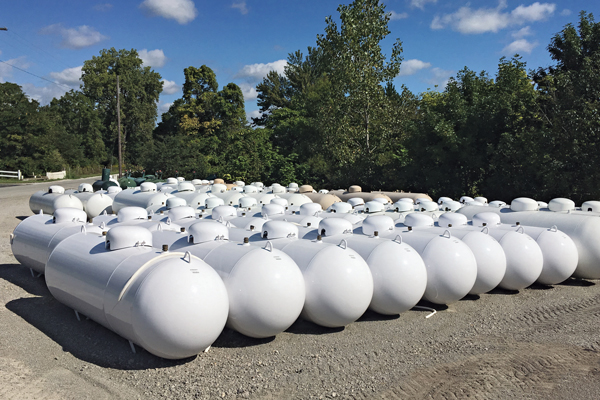How Global Trends Influence Propane Markets

Propane, a vital energy source for heating, cooking, and industrial processes, is influenced by a variety of global factors. Understanding these dominant influences can help propane businesses navigate the shifting landscape of their industry.
Economic Factors
Global Economy
Economic conditions directly impact propane demand. In robust economies, industrial output increases, boosting propane use in manufacturing and processing. Conversely, economic downturns can reduce demand as industrial activities slow.
Oil Prices
Since propane is a byproduct of natural gas processing and oil refining, its supply is tied to the oil market. Fluctuations in oil prices can affect propane production costs and availability.
Environmental Policies
Regulations
Stricter environmental regulations can increase propane’s appeal as a cleaner alternative to fuels such as coal and oil. This can lead to higher demand, particularly in regions aggressively targeting emissions reductions.
Sustainability Trends
As businesses and consumers increasingly prioritize sustainability, propane is seen as a viable solution due to its lower carbon footprint compared to other fossil fuels.
Technological Advancements
Extraction and Production Technologies
Advances in technology make it easier and cheaper to extract and process propane, potentially increasing supply. However, these technologies can also make alternatives more viable, impacting demand.
Energy Efficiency
Improvements in appliance efficiency reduce the amount of propane required for heating and power, which could lower demand over time.
Geopolitical Factors
Export/Import Restrictions
Political tensions and trade agreements can affect propane imports and exports, influencing availability and prices in different markets.
Market Expansion
Emerging markets, particularly in Asia and Africa, show increased demand for propane as infrastructure develops and populations grow in these regions.
Impact on Propane Businesses
For propane businesses, these global trends highlight the need for adaptability and strategic planning. Businesses that can anticipate changes in the economy, regulatory environment, and technology are better positioned to adjust their operations and marketing strategies accordingly.
Strategic Sourcing
Companies need sourcing strategies to manage supply risks associated with global oil price fluctuations and geopolitical tensions.
Market Diversification
Diversifying into new markets or expanding in residential, commercial, and industrial sectors can mitigate the risks associated with demand fluctuations.
Innovation and Efficiency
Investing in research and development can yield more efficient propane applications, thereby maintaining competitiveness as energy efficiency standards tighten.
Educational Initiatives
By educating consumers and industries about propane’s environmental benefits, companies can enhance market demand and position themselves as leaders in sustainable energy solutions.
Understanding and responding to the factors affecting propane supply and demand will enable businesses to secure their market position and capitalize on emerging opportunities, thus driving greater growth and stability in a rapidly changing world.
















